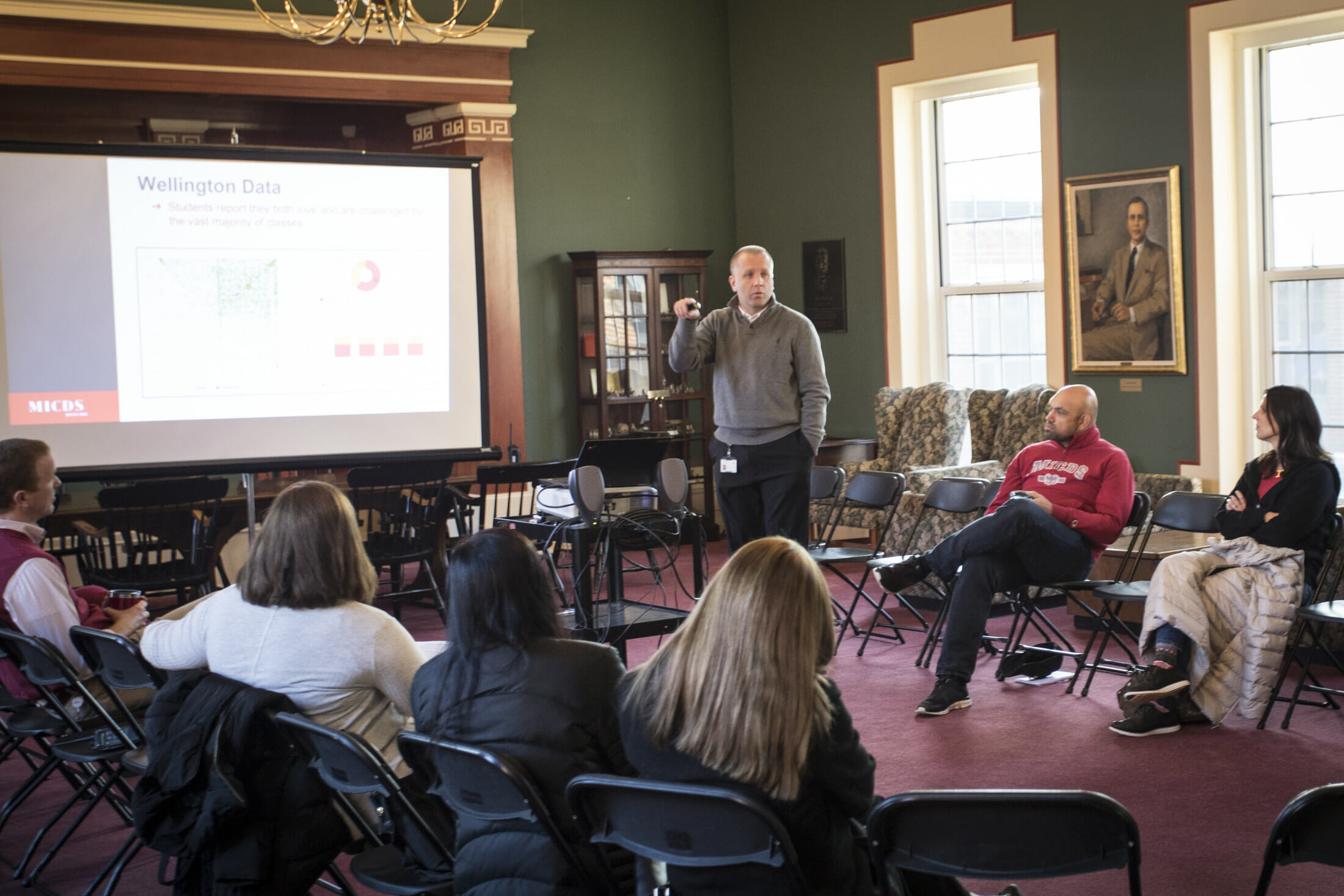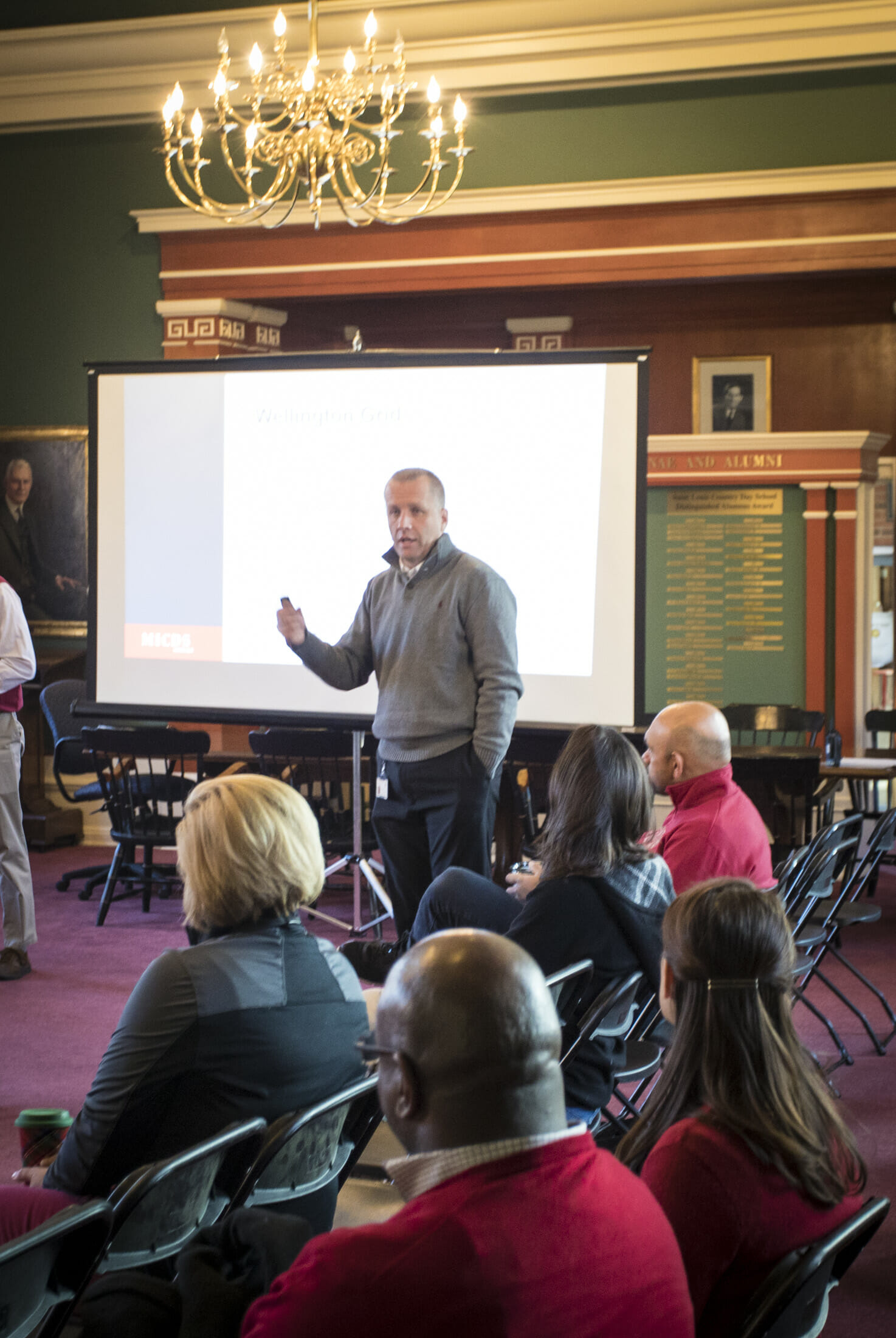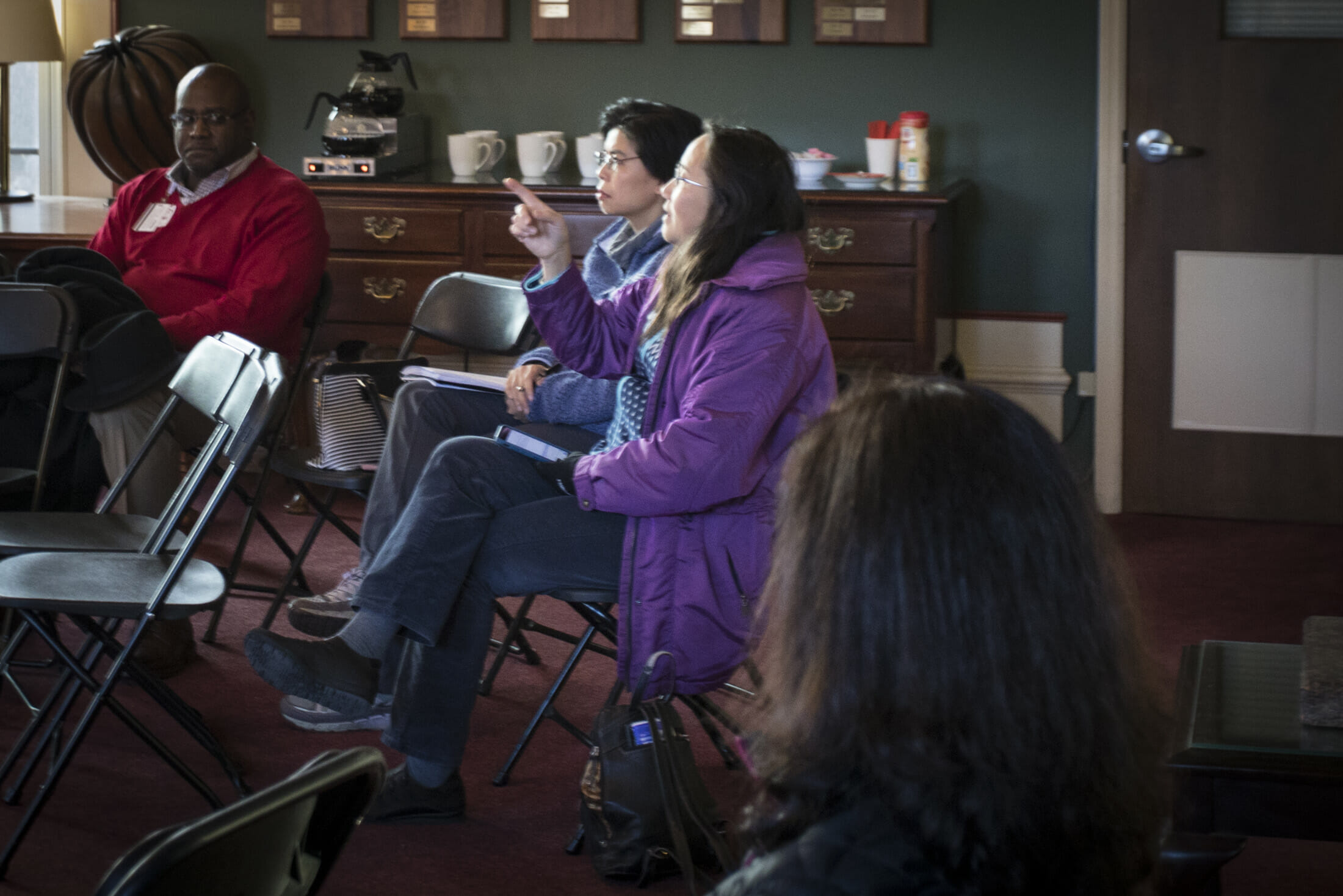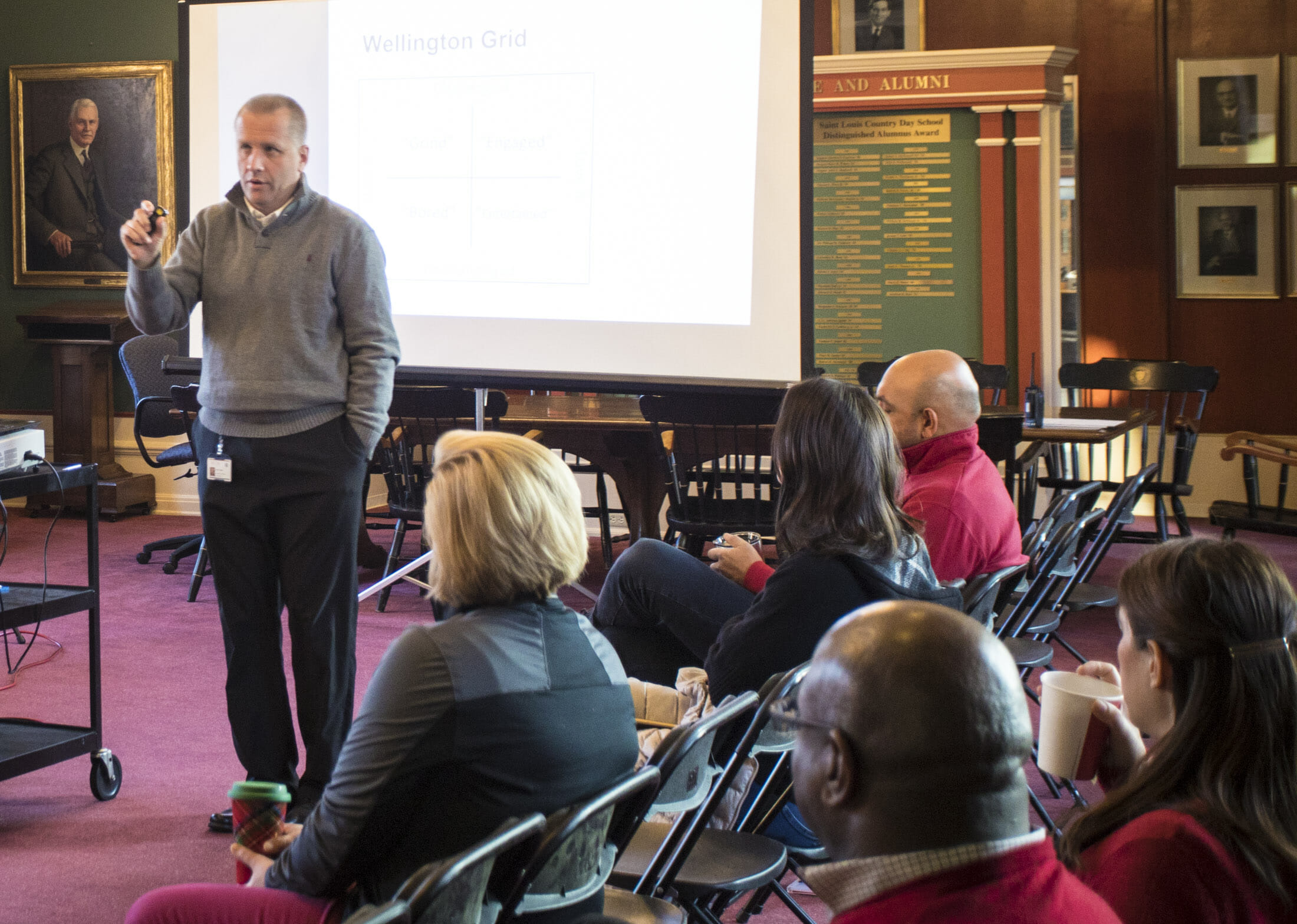At this week’s «Sessions with Small,» Scott Small, Head of Upper School, shared information with parents about student intellectual engagement, achievement and wellness, and academic schedule and pressure points. There was time for a question-and-answer session and meaningful discussion on this important topic.
One key takeaway — according to their rating of their classroom experiences, Upper School students are both enjoying the overwhelming majority of their classes and are finding them challenging at the same time.
How do we know this? Well, as you may know, MICDS is a data-driven school. The School employs measurement and survey tools to track student engagement. One such tool is the Wellington Student Engagement Grid where students rank their classroom experiences on a grid with «hate it» to «love it» on the horizontal axis and «unchallenged» to «challenged» on the vertical axis. Students complete this simple but elegant feedback grid once per trimester in the Upper School. This longitudinal data allows the Upper School to measure growth over time at grade levels within specific disciplines and across the division. It also provides anonymous and aggregated data to teachers so that they can measure their own impact in the classroom. In addition, it allows the Student Support Group the opportunity to identify students who are not feeling fully empowered in their academic experience to ensure appropriate support and intervention. While this tool has only been used for a couple of years, the data is compelling: the vast majority of student ratings fall in the first quadrant with both «love it» and «challenged» as positive indicators. Students are reporting that, on average, they both love and are challenged by the majority of their classes in the Upper School.



